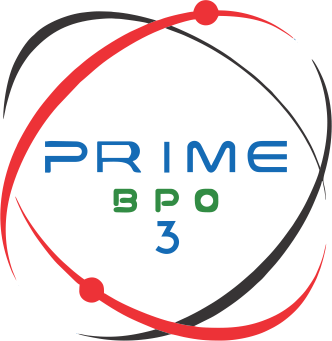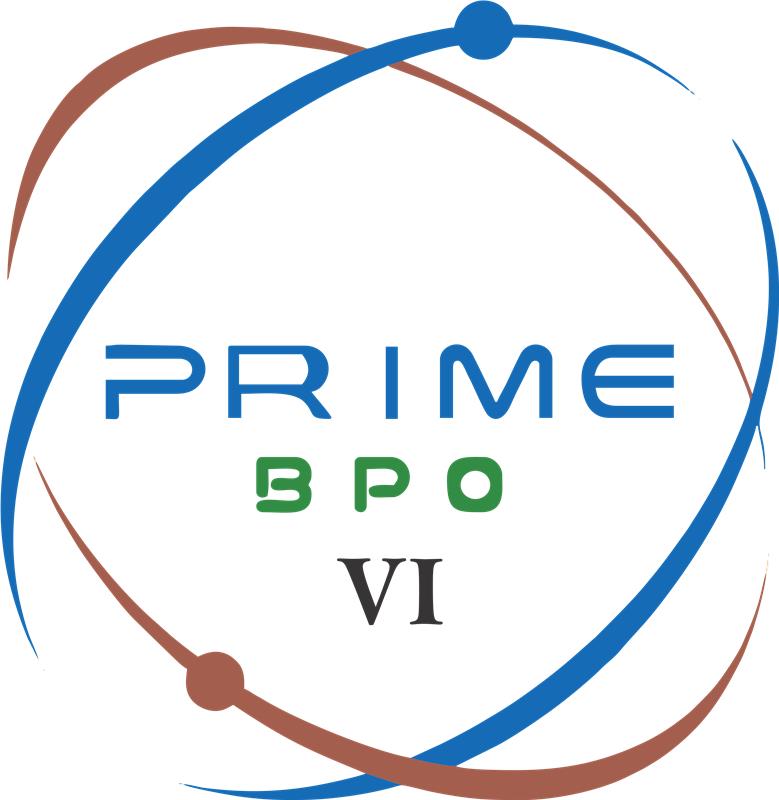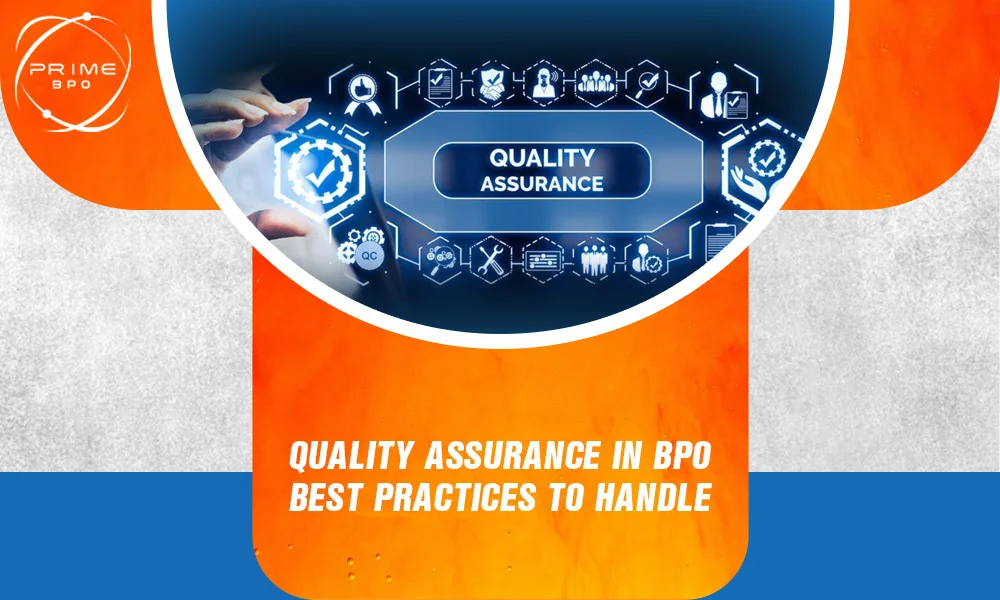Why do some BPO companies shine while others struggle? The answer often lies in their approach to quality assurance. Quality Assurance in BPO isn’t just a formality; it’s about making sure every service is top-notch and every customer is happy. So, how can you make sure your QA process hits the mark? Let’s explore the best practices that can elevate your BPO services to the next level.
What is Quality Assurance in BPO?
Quality Assurance in BPO involves systematically monitoring and evaluating various aspects of a service. The goal is to ensure that the services provided meet the agreed-upon standards and customer expectations. It includes regular checks, audits, and feedback mechanisms to maintain high service quality.
Key components of quality assurance include:
- call monitoring and evaluation
- feedback mechanisms
- performance metrics analysis
- continuous coaching and training for agents
You can identify areas of strength/weakness with comprehensive quality assurance mechanisms and establish benchmarks for customer service quality.
Importance of Quality assurance in BPO
Ensures Consistency
- Standardized Processes: Quality assurance in BPO helps standardize processes across the board, ensuring each customer receives the same high level of service.
- Uniform Output: Consistency in service delivery leads to predictable and reliable outcomes.
Enhances Customer Satisfaction
- Meeting Expectations: Companies can meet or exceed customer expectations by adhering to quality standards.
- Feedback Mechanism: Regular feedback from QA processes helps understand and address customer needs effectively.
Improves Efficiency
- Error Reduction: Quality assurance in BPO identifies and reduces errors, streamlining operations.
- Optimal Performance: Continuous monitoring and improving processes lead to better performance and efficiency.
Builds Trust and Credibility
- Reliability: Consistent quality builds client trust, enhancing the company's reputation.
- Client Retention: High-quality services increase customer loyalty and retention.
Facilitates Compliance
- Regulatory Adherence: Quality assurance in BPO ensures that services comply with industry regulations and standards.
- Risk Management: Identifies potential risks and implements measures to mitigate them.
9 Best Practices in Handling Quality assurance in BPO
Quality assurance in BPO is curial to maintain high service standards and ensure customer satisfaction. Here are nine best practices to handle QA effectively in a BPO setting.
Aligning Metrics with Business Goals
How do you ensure your QA efforts are driving the business forward? Start by aligning your metrics with your business goals.
- Understand Business Objectives: The first step is thoroughly understanding the business's key objectives. Are you aiming for customer satisfaction, cost reduction, or process efficiency?
- Set Relevant Metrics: Ensure your chosen QA metrics directly reflect these objectives. If customer satisfaction is prioritized, include metrics like customer feedback scores or resolution times.
- Review Regularly: Business goals can change over time. Periodically review and adjust your metrics to ensure they remain aligned with your current objectives.
By aligning Quality assurance in BPO metrics with business goals, you ensure that your efforts contribute directly to the company’s success.
Defining Quality Metrics Clearly
What makes a quality metric effective? Clarity is key.
- Be Specific: Use specific, measurable, achievable, relevant, and time-bound (SMART) criteria. For example, instead of saying "improve customer service," set a target like "reduce average call handling time by 10% in the next quarter."
- Communicate Metrics: Make sure that all team members understand the metrics. This helps in ensuring everyone is working towards the same goals.
- Consistency: Apply and measure these metrics consistently. Inconsistencies can lead to confusion and inefficiencies.
Clear metrics provide a transparent performance benchmark and help identify areas for improvement.
Creating a Comprehensive QA Checklist
How do you ensure nothing falls through the cracks? Use a detailed QA checklist.
- Identify Key Areas: List all the critical areas that need regular checking. This could include call quality, adherence to scripts, and customer satisfaction.
- Detailed Items: Break down each area into specific items to check. For instance, you might look at greeting, issue resolution, and closing in call quality.
- Review and Update: Regularly review and update the checklist to reflect any changes in process or standards. This keeps your QA efforts relevant and effective.
A comprehensive checklist ensures thorough monitoring of all critical aspects, maintaining high service standards.
Developing a Detailed Improvement Plan
What’s your strategy for continuous improvement? A detailed plan is essential.
- Identify Weaknesses: Use QA data to pinpoint areas needing improvement. Are there recurring issues in certain processes or areas?
- Set Goals: Define clear improvement goals and objectives. For example, you could reduce error rates or improve customer satisfaction scores.
- Action Steps: Outline the steps needed to achieve these goals. Assign responsibilities and set timelines for each step.
Having a detailed improvement plan ensures a structured approach to enhancing service quality over time.
Implementing Regular Feedback Mechanisms
How do you keep your team on track? Regular feedback is crucial.
- Frequent Reviews: Schedule regular performance reviews and feedback sessions. This helps in addressing issues promptly.
- Constructive Feedback: Provide feedback that is constructive and focused on improvement. Highlight both strengths and areas for development.
- Open Communication: Encourage open communication and allow team members to share their views. This fosters a collaborative environment.
Regular feedback helps employees understand their performance and areas where they can improve, driving continuous improvement.
Utilizing Performance Data for Coaching
How can you make your coaching sessions more effective? Use performance data.
- Analyze Data: Regularly analyze performance data to identify trends and areas for improvement. Look for patterns that might indicate underlying issues.
- Personalized Coaching: Provide coaching tailored to individual employee needs based on their performance data. This makes the coaching more relevant and impactful.
- Monitor Progress: Track the progress of coached employees and adjust coaching methods as necessary. This ensures continuous development.
Effective use of performance data for coaching helps in improving individual and overall team performance.
Proper Screening and Training of QA Teams
How do you build a strong QA team? It starts with proper screening and training.
- Rigorous Screening: Screen QA candidates thoroughly to ensure they have the necessary skills and experience. Look for individuals with a keen eye for detail and strong analytical skills.
- Comprehensive Training: Provide thorough training on Quality assurance in BPO processes, tools, and metrics to ensure that all team members are on the same page.
- Continuous Development: Offer ongoing training and development opportunities. This allows in maintaining the crew’s abilities up-to-date and relevant.
Proper screening and schooling ensure that the QA group is properly equipped to preserve high standards.
Implementing Effective Incentive Programs
How do you motivate your crew to keep excessive requirements? Implement powerful incentive packages.
- Define Criteria: Clearly define the criteria for earning incentives. This could be based on performance metrics, customer feedback, or achieving specific goals.
- Fair and Transparent: Ensure the incentive program is fair and transparent. Everyone should understand how incentives are earned.
- Regular Rewards: Provide regular and timely rewards to maintain motivation. This could be in the form of bonuses, recognition, or other perks.
Effective incentive programs encourage employees to strive for excellence and improve service quality.
Considering Outsourcing for Quality Auditing
Should you handle quality audits internally or outsource them? Outsourcing can bring valuable benefits.
- Evaluate Options: Research and evaluate potential outsourcing partners. Look for firms with a strong track record and relevant experience.
- Set Clear Expectations: Clearly define the scope and expectations of the outsourced audit. This includes the areas to be audited, the metrics to be used, and the reporting process.
- Regular Audits: Schedule regular audits to ensure continuous quality improvement.
External audits can offer impartial exams and perceive areas that are overlooked internally.
Outsourcing exceptional audits can help discover blind spots and offer impartial checks of provider excellence, ensuring continuous improvement.
Effective quality assurance in BPO requires an established technique and a commitment to continuous improvement. By aligning metrics with enterprise goals, defining the best metrics clearly, and using comprehensive checklists, BPO corporations can keep up with high requirements. Regular remarks, focused training, and properly skilled QA teams further enhance satisfaction. Implementing incentive packages and considering outsourcing audits can provide additional boosts to providers' first-rate. Adopting these Quality assurance in BPO fine practices will assist in achieving steady, first-rate overall performance, leading to increased patron delight and enterprise achievement.
Conclusion
Is your BPO's quality assurance strong enough to keep you ahead? You can ensure your services excel by focusing on clear metrics, regular feedback, and constant improvement. Quality assurance in BPO is not a one-time effort but a continuous journey towards excellence. Are you ready to enhance your QA process and boost your business success?
FAQs
How can I be an effective QA in BPO?
To be a powerful QA in BPO, you must be conscious of understanding the organization's standards and client expectations. You should regularly reveal and compare carrier methods and offer optimistic remarks for continuous improvement. You should also stay updated with industry quality practices and enhance your verbal exchange competencies.
What is the responsibility of QA in BPO?
The responsibility of QA in BPO includes monitoring service quality, ensuring compliance with standards, and providing feedback for improvement. QA specialists also identify process gaps and work on corrective actions. Their goal is to maintain high customer satisfaction and operational efficiency.
What is the QA process in a call center?
The QA process in a call center involves recording and reviewing calls to ensure agents meet performance standards. It also includes evaluating communication skills, adherence to scripts, and resolution effectiveness. Based on these evaluations, regular feedback and training sessions are conducted to enhance service quality.
References:
https://blog.screensteps.com/call-center-quality-assurance-best-practices
https://www.sprinklr.com/blog/call-center-quality-assurance-best-practices/
https://knowmax.ai/blog/call-center-quality-assurance-tips/






